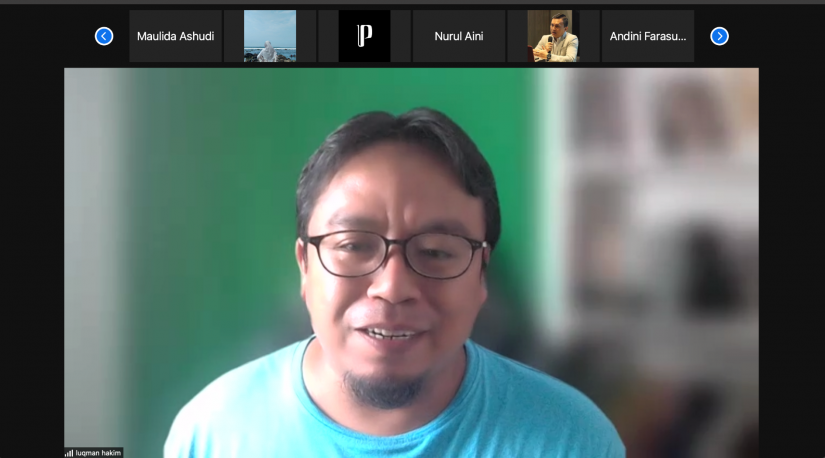
The event lead by Cut Intan Aulia Isma from the Institute of International Studies was started with a welcoming remarks from the representative of PSKP and The Asia foundation, Muhammad Najib Azca and Sandra Hamid. The three editors of the book “Pandemic, Conflict, and Transformation: Challenges to Democracy and Social Inclusion” also participated in this launching event. Luqman-nul Hakim and Mohtar Mas’oed took part in talking about the book. Meanwhile, the other editor, Frans A. Djalong, took part in being the speaker representing PSKP as well as the UGM Sociology Department with the other two speakers, Sulfikar Amir from Nanyang Technological University Singapore, and Ita Fatia Nadia from the Archive Room and Indonesia’s Women History (RUAS). In their explanation, the speakers also talked about their experience and understanding about the central theme of the book.
Attended by almost a hundred people, this event didn’t just cover the book but also talked about the important questions in relation to the future of peace and social inclusion in the pandemic and post-pandemic context. Moreover, the speakers also created a two way discussion with the attendees by answering questions that have not been addressed in the explanation session.
Through several perspectives and experiences, the book “Pandemic, Conflict, and Transformation: Challenges to Democracy and Social Inclusion” serves as a critique of the tendency towards technocracy and anti-democracy in the pandemic management that takes the shape of national and global emergency. The collection of writing in the book “Pandemic, Conflict, and Transformation: Challenges to Democracy and Social Inclusion” is meant to assess the problem and challenges of democracy, development, and security in the social context and power structure that is transforming in the pandemic.
